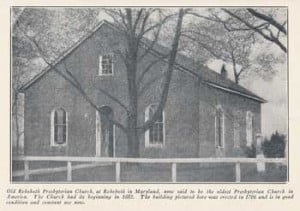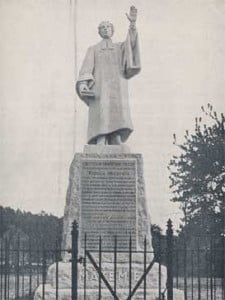A Complaint by an Irish Presbytery
by Rev. David T. Myers
The facts are very sketchy on the Rev. John Wilson back in 1730.
What we do know is that he came to the middle colonies of America from Ireland sometime in the early seventeen hundreds from the Presbytery of Armagh in Ireland. Presenting his credentials as a minister of the Presbyterian convictions, he was immediately received by the presbytery. Without a call to a particular church, he began to preach at Lower Octorara in eastern Pennsylvania with much acceptance by the members of the congregation. As Richard Webster says in his History of the Presbyterian Church, he made “a strong party in his favor.”
It was then that the Presbytery of New Castle received a letter from the Irish Armagh Presbytery on January 17, 1730 regarding the Rev. Mr. Wilson. What was transmitted in that letter is lost to history, but it must have been unfavorable to Rev. Wilson as they resolved not to employ him in the visible church.
The written record of Richard Webster states that a misunderstanding arose between the congregation and the Presbytery. A local Judge of the New Castle County Court, the Honorable Robert Gordon, wrote to the Synod to interpose between the two units of Presbyterianism. They did, but to what results we are not informed.
However it must have been not too favorable to Rev. Wilson, as he moved to Boston, Massachusetts.
The only other record of him is that at the age of 66, Rev. Wilson died on this day, January 6, 1733, just three years after the original complaint came from the Irish Presbytery to the infant Presbyterian church in the colonies.
Words to Live By:
As this author said at the beginning of this post, there is much left unsaid in the written record. And whenever we hear of an issue between a Presbytery and a local church, or a Presbytery and a members of that lower court, it is a day of sadness over the lack of unity in the work of the Lord. Let us resolve to pray when we find ourselves in such a situation, or hear of others of God’s people when they find themselves in the midst of such conflict. Let us pray for clarity of vision for all sides, love for the brethren, and that the purity of Christ’s church would be preserved in the ongoing dispute.


